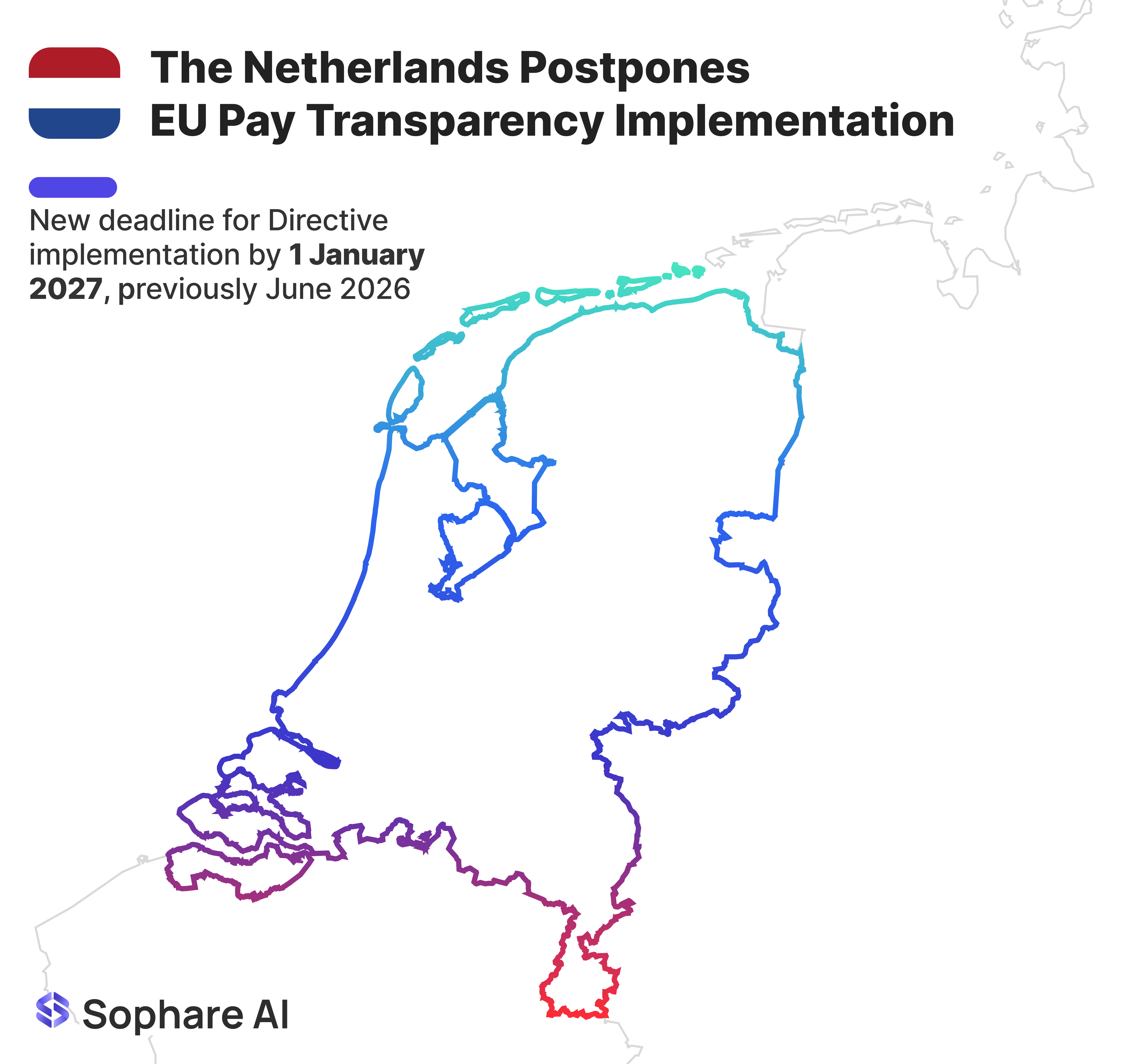Netherlands Postpones EU Pay Transparency Directive to 2027
The Dutch government has officially postponed the implementation of the EU Pay Transparency Directive to 1 January 2027 (previously June 2026).

What This Means
- The bill will go to the Council of State by the end of 2025
- Parliament will debate the bill in 2026, with obligations starting 1 January 2027
- Reporting obligations: first apply to companies with 150+ employees, covering 2027 pay data (so first reports due in 2028) Obligations for employers with 100–149 employees will follow in line with the Directive
- Transparency obligations (e.g., salary range in job ads, ban on asking salary history, employee right to request average pay for comparable roles) will also most likely take effect from 1 January 2027
- It's still unclear whether other member states that haven't yet transposed the Directive will follow a similar delay
Why This Matters
The signal here is clear: the delay itself shows how behemoth this legislation is. The EU Pay Transparency Directive is arguably bigger than GDPR. Governments are weighing how to implement such a complex Directive without overwhelming employers with administrative burden.
If your team is already feeling the weight of pay transparency compliance, we built Sophare AI to remove that burden.
Our AI-native platform automates and optimises reporting, grouping, and analysis. Sophare's platform is grounded in a decade of experience building equal pay models for global compliance at Salesforce and our CTO's experience as en engineer at OpenAI.

